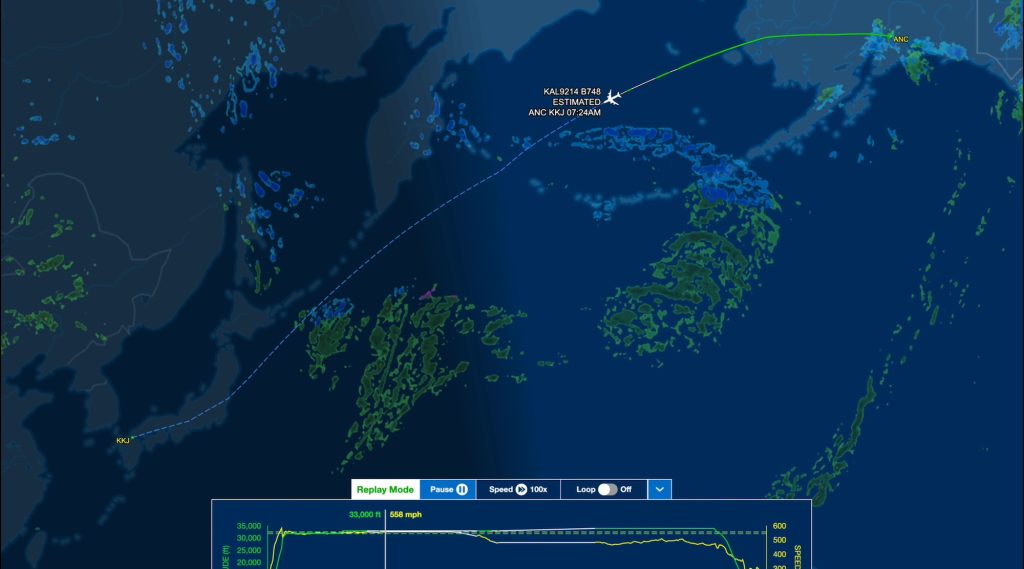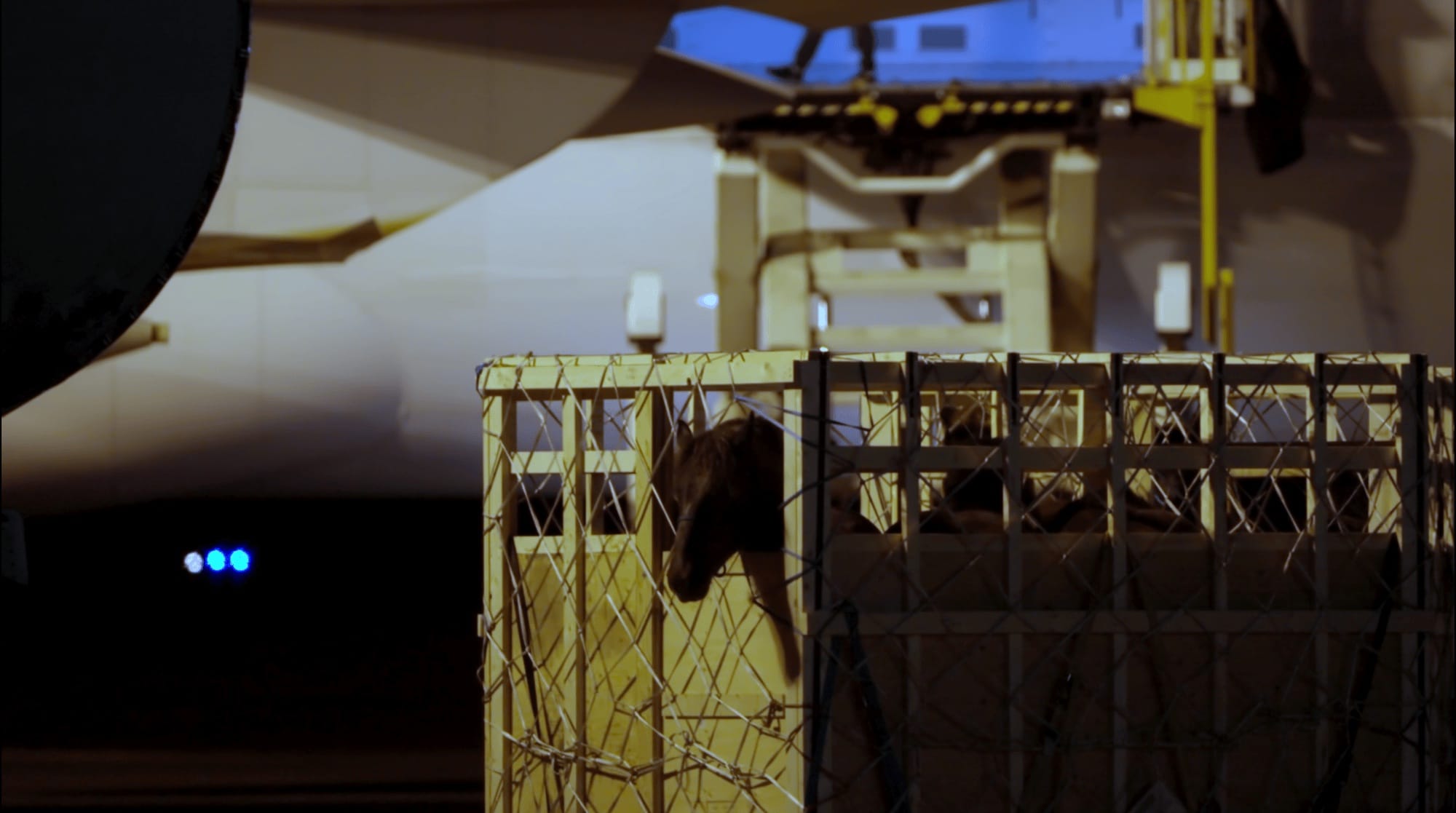Canada ships thousands of live horses to Japan every year from the Winnipeg and Edmonton airports. Once in Japan, the horses are first fattened up, and then violently slaughtered and served raw as sashimi, a delicacy for the wealthy. Calls have grown for the federal government to ban the practice, and while Bill C-355 is before the Senate and aims to make this dream a reality, there is still a long road ahead before it becomes law. In the meantime, thousands of horses are still exported every year on grueling flights to their death.
Now, for the first time ever, Animal Justice has documented the full journeys of multiple plane loads of horses as they are loaded into crates at Canadian airports, and arrive in Japan where they are then unloaded and trucked off to quarantine facilities. Shockingly, our investigation shows a troubling pattern of legal violations, including:
- Horses denied food, water, and rest well past the 28-hour legal time limit
- Horses packed tightly in wooden crates, three at a time
- Horses sprayed in the face with harsh chemical disinfectant
Watch the Video
In Canada, the legal time limit for transporting horses to Japan for slaughter is a gruelling 28 hours without food, water, and rest. This includes loading the horses and shipping them overseas. The Canadian government’s timeline ends when the horses land in Japan, but the journey isn’t over for the horses, and now we’re telling the rest of their story.
Our Investigation
The first of four shipments we filmed started on May 5, 2024, where nearly 100 horses were shipped by truck from a farm in Hanna, Alberta to Edmonton International Airport. In the cloak of night, the horses were packed tightly together in tiny wooden crates, three at a time. At about 1:00 am, they were lifted into the plane, and three hours later, the plane took off.
Animal Justice tracked Korean Air flight number 9214 as it flew for nearly three hours to Anchorage, Alaska, followed by a seven and a half hour flight to Kitakyushu airport in Japan. Authorities with the Canadian Food Inspection Agency (CFIA) stopped calculating the timeline at this point, and official documents record the trip as lasting 23.90 hours, which would be within the 28-hour limit. But the journey for the horses was far from over.
Animal Justice worked with the Japanese animal advocacy group Life Investigation Agency to monitor the rest of the journey once the horses arrived in Japan. We saw horses slowly unloaded from the plane and put into trucks, with some waiting over four hours. They were then trucked to a quarantine facility 30 minutes from the airport, putting the total time at over 28 hours.

Most Horse Shipments Break Legal Time Limit
The other three shipments we filmed departed from Edmonton on May 21, June 11, and June 18, and landed in Kansai, Japan. These shipments were even more egregious, extending the CFIA’s official timeline by between four and a half and six and a half hours. In every case, the horses were in transit for well over 28 hours, with one shipment taking over 31 hours.
But we didn’t stop here. Animal Justice looked back at government data covering all horse shipments since November, 2023. Based on our analysis of the additional time it takes to transport horses in Japan after the CFIA stops calculating, we estimate that at least two thirds of the shipments that took place over the past seven months exceeded the legal time limit. Animal Justice’s full findings are summarized in our new report, Flying Above the Law: Inside Canadian Horses’ Long Journey to Japan.
After suffering in cargo during their long, gruelling journey, the exhausted and terrified horses are met with abuse in Japan.
At the quarantine facility near the Japanese airport, open-sided trucks filled with horses are sprayed with a disinfectant that stung the eyes of our investigator. Desperately dehydrated, some horses tried to lick the harsh chemical off of the nets of the truck.

End Live Export of Canadian Horses to Japan
In recent years, huge progress has been made to finally end the cruel practice of flying horses to their death. Two bills are currently in Parliament that aim to stop these nightmare flights once and for all. But while the bills work their way through the legislature, horses continue to suffer and die.
Please join us in demanding that CFIA officials immediately impose a moratorium on horse shipments to Japan, and fully investigate the repeated breach of animal protection laws by Canadian horse exporters.
